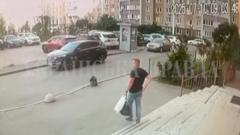**The retrial of Kim Jae-gyu poses crucial questions about power, democracy, and historical narratives in South Korea, as reflecting the complexities of his assassination of President Park.**
**Retrial of Kim Jae-gyu: A Struggle Between Legacy and Justice**

**Retrial of Kim Jae-gyu: A Struggle Between Legacy and Justice**
**South Korea reexamines the polarizing actions of KCIA chief who assassinated President Park Chung-hee.**
Two gunshots. This is where the story of a critical moment in South Korea’s turbulent history begins, with Yoo Seok-sul, a former security guard in the Korea Central Intelligence Agency (KCIA), recounting the fateful night of October 26, 1979. Yoo vividly recalls the setting; he was resting in the break room of a low-rise compound known as the "safe house." It was there that President Park Chung-hee, who had ruled with an iron fist for 18 years, was assassinated by his ally, Kim Jae-gyu, head of the KCIA.
Now nearly half a century later, Kim's actions are being reconsidered in a Seoul court amidst questions of treason or patriotism. Following Kim's execution for insurrection soon after the assassination, his family has fought for a retrial, arguing he was a figure of integrity rather than a power-hungry traitor. Kim's story exemplifies wider conflicts in South Korea’s struggle between its authoritarian past and democratic values, especially in light of current political tensions, where impeached President Yoon Suk Yeol faces similar charges.
As South Koreans remember the events surrounding Park’s assassination, sentiments about both leaders remain sharply divided. President Park is credited with significant economic progress but is also vilified for his dictatorial governance. Kim, often depicted as a monster for his actions, presents a more complex character—an individual who may have acted on behalf of higher ideals but is also implicated in oppressive practices during his tenure at KCIA. Both men's legacies complicate the public's narrative, with varying interpretations of heroism, sacrifice, and the quest for democracy.
The case's renewed interest comes on the heels of political controversies in contemporary South Korea. Kim Jae-gyu's family insists that his trial in a military court was unjust, arguing that it lacked legal rigour and fairness. In this latest retrial, defense attorney Lee Sang-hee asserts that the original proceedings hinged on coerced confessions and insufficient evidence. As the case unfolds, it is not only about one man’s fate but also about the lens through which a nation interprets its tumultuous history.
Father Ham Se-woong, a prominent activist from the era, suggests that Kim’s motivations stemmed from a desire to prevent greater bloodshed, ultimately advocating for a peaceful transition across a troubled political landscape. As the events surrounding the retrial unfold, they evoke reflections not only on Kim’s legacy but also on South Korea’s present democracy, testing how far the nation has truly come since those dark days.
Kim Jae-gyu's assassination of Park Chung-hee serves as a pivotal moment in South Korean history, raising fundamental questions regarding loyalty, justice, and the complexities of moral choice. As the retrial progresses, it presents South Koreans with a unique chance to assess where they stand in relation to their past, grappling with uncomfortable truths about power, sacrifice, and the very nature of their democracy.





















